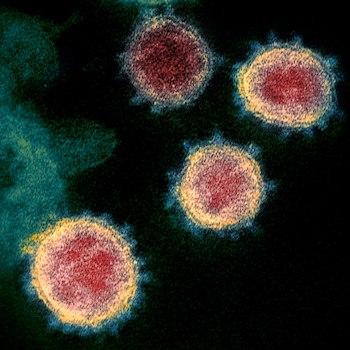Two drugs, chloroquine (CQ), and hydroxychloroquine (HCQ) are all over the news because both drugs are being extensively studied for their antiviral potential against coronavirus. Although the names and chemical structures are very similar there is a significant difference between the two – toxicity. Hydroxychloroquine is the more studied of the two, and this is not without reason. Its toxicity is far lower.

Chloroquine (Left) and Hydroxychloroquine (Right) differ by only one oxygen atom.
RELATIVE TOXICITY
There are a number of ways to express the toxicity of a chemical compound. One is the LD50 – the dose of the chemical that kills 50% of lab animals. Figure 1 shows that CQ is about 3-times more toxic than HCQ in different animal models and routes of administration.

Figure 1. LD50 comparison of CQ and HCQ. The lower the number the more toxic the chemical. In the five cases in which both drugs were administered in the same way to the same animals, CQ was more toxic 4/5 times and the drugs were the same once. Source: American Journal of Medicine (1983).
Another way to determine toxicity is to dose an animal with the chemical and then examine histopathological changes in important organs.

A comparison of the histopathological changes caused by chloroquine and hydroxychloroquine in rat organs. CQ caused more organ damage in 14/15 parameters. Source: European Scientific Journal
Conclusion:
It is a pretty safe bet that HCQ is less toxic than CQ. Other literature data back this up.
POTENCY
I really don't know what to make out this. Yao and colleagues reported that the EC50 – the concentration which inhibits 50% of viral growth in cultured cells – is 5.42 micromolar for CQ (this makes it a very weak inhibitor) and 0.77 micromolar (a moderately potent inhibitor) for HCQ, making HCQ seven times more potent than CQ. You don't see many 5 micromolar drugs out there, so this would give the edge to HCQ.
But Wang and colleagues reported that that number for CQ is 0.77 micromolar and didn't give data for HCQ. To make matters worse, Liu and colleagues determined that the two drugs were about the same. Although the in vitro data seem confusing one can conclude that even if HCQ had only the same in vitro potency (unlikely) as CQ it would still be a superior candidate because larger doses could be given, which would (presumably) lead to higher blood levels of the drug.
WHAT'S GOING ON IN THE CLINIC?
A mess.
Right now, we aren't even close to an answer. Without any results from randomized clinical trials, it is little more than a guessing game at this point.
A French study of HCQ suggested that it had was effective in decreasing the viral load from nasal secretions. When azithromycin was added the magnitude of the effect was larger. At best, this study might give us a clue about how effective HCQ is in reducing transmission since the authors didn't measure or mention the drug's impact on the lung. There is absolutely no evidence that HCQ or HCQ/azithromycin would have any effect on seriously ill patients with viral pneumonia. And there is indirect evidence that it did not; otherwise, we'd be hearing about how the drug(s) cured or helped really sick people. There are other problems with this study, but since no impact on lung function was considered it is difficult to conclude that the drugs provided any benefit whatsoever.
And a Chinese study of 30 patients doesn't prove that HCQ worked. Or that it doesn't. But the two groups, control and treated, showed no difference in the amount of virus in the throat on day seven, the length of time for the fever to go away. There was an apparent difference in the progression of the infection (determined by x-ray), in the two groups but this means little since 5/15 treated patients got worse vs. 7/15 in the control group. This effect could easily be by chance and nothing to do to the drug. Furthermore, this trial did not include azithromycin, so it cannot be compared to the French trial.
Conclusion: There is nothing encouraging here, at least so far. If there was any effect of HCQ on the disease it was minimal. HCQ may be safer than CQ, but this doesn't matter if the drugs are ineffective. However, nothing so far rules out the possibility that one of these drugs will be shown to be effective once they are studied properly.




